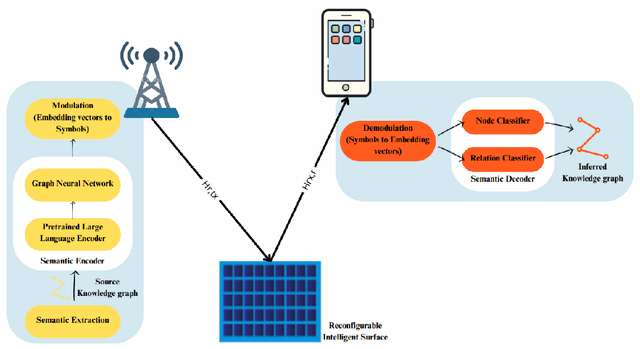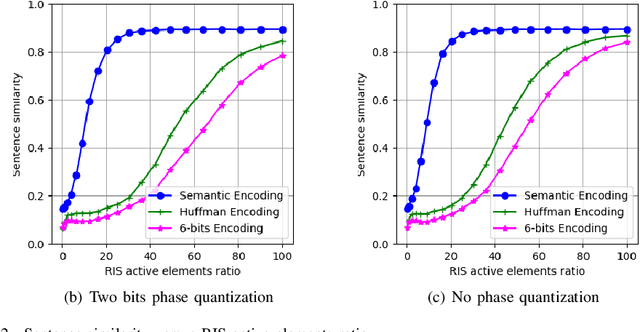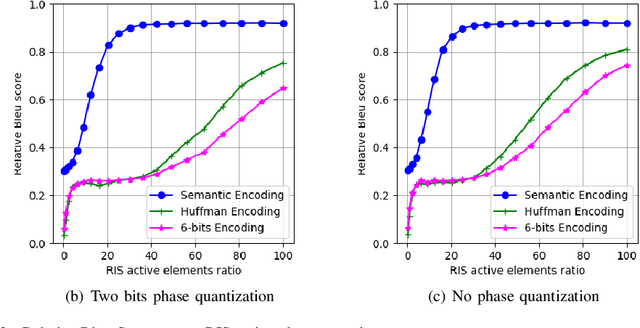Optimizing RIS Impairments through Semantic Communication
Paper and Code
Oct 10, 2024



This paper investigates how semantic communication can effectively influence and potentially redefine the limitations imposed by physical layer settings. Reconfigurable Intelligent Surfaces (RIS) enable the intelligent configuration of the physical layer of communication systems. However, its practical implementation is hampered by several limitations. The Semantic Communication (SemCom) paradigm introduces additional degrees of freedom that can be exploited to improve the robustness of communication against physical layer impairments. In essence, SemCom ensures that the data representation remains robust even under adverse physical conditions by emphasizing the transmission of meaningful information in a manner that is less susceptible to degradation. Through the use of SemCom, potential RIS gains are demonstrated in terms of RIS area size and the phase shift precision of its active elements.
 Add to Chrome
Add to Chrome Add to Firefox
Add to Firefox Add to Edge
Add to Edge